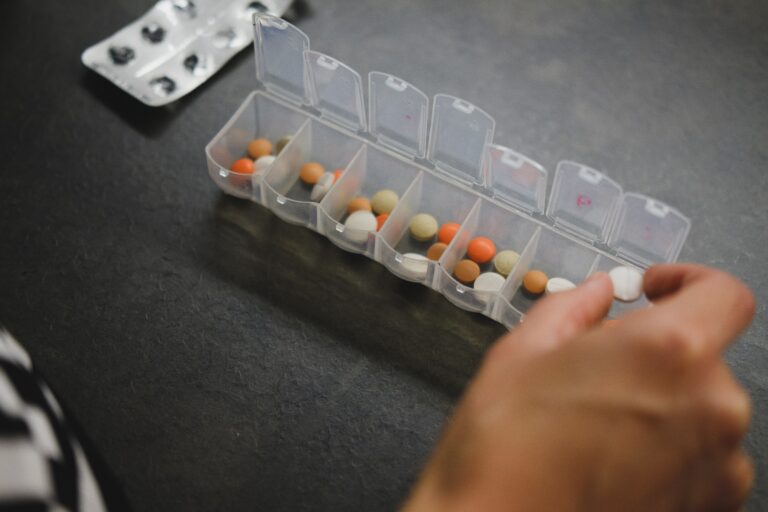There’s a decision that millions of people have to make at a time when they have the greatest difficulty making decisions. The decision is more complicated than pondering how effective anti-anxiety and depression meds are.
When anxiety and/or depression begins to slowly, pervasively suffocate the “life out of life,” people have to choose. Do I continue down this path into the dark unknown by myself…or do I get help? And what if that help involves anti-anxiety and depression meds? Do I want to go that route?
Compared to even a few decades ago, discussion of mental health has begun to step out of the shadows into the light of day. Especially after the height of the Covid pandemic. And yet, understanding, acceptance, compassion, and treatment still have so far to go.
For as common as anxiety and depressive disorders are, their negative impact on every aspect of life is largely understated.
Anxiety disorders, for example, are the most common mental illness in the U.S., affecting over 40 million people over 18 years of age every year.

And major depressive disorder (MDD) is the leading cause of disability in the U.S. for those between 15 and 44.3 years of age.

What should give you (and all of us) pause is the sheer magnitude of these forms of mental illness…and their impact.
For instance, depression and anxiety can cause memory loss if left untreated.
The person suffering with any form of anxiety or depressive disorder isn’t the only one who suffers. Everyone in theirr sphere suffers. Like the sufferer, they miss out on the full potential of life and relationships.
And the debilitating effects trickle all the way down to money.

Every year, our economy loses billions of dollars to the disabilities of anxiety and depression. Missed work, unsatisfactory job performance, inability to stay employed, choice of employment. It’s all connected.
So how do you know when worry has turned into panic? Or performance jitters become an anxiety disorder? Or the blues that have fallen over your mood have become clinical depression?
How do you even start the process of considering anti-anxiety and depression meds?
Great questions!
First, look at your life:
- Is your mood interfering with your normal functioning?
- Do you been feeling consistently down?
- Have you lost interest in things you used to enjoy?
- Have your eating, weight, sleep, energy changed in the past two weeks without changing back to normal?
- Is your mood affecting your work and relationships?
- Are you irritable? Obsessing? Having physical symptoms like increased heart rate or sweaty palms?
The diagnosis of major depressive disorder (MDD), for example, has strict diagnostic criteria.
This is important, in part, because anxiety and depression are not diagnosable via a blood test (someday?) or biopsy. They rely on a person’s ability (and willingness) to make an honest assessment of their mental state based on specific, clinically provided criteria.
They also rely on the knowledge, experience, and intuition of psychiatric and psychological professionals to interpret and help clarify that assessment in order to proceed with treatment.
In these ways, anxiety and depression, like mental illness in general, are subjectively diagnosed.
What does all this have to do with the efficacy of anti-anxiety and depression meds?
A lot, actually.
First, it helps you know when it’s time to see your doctor about treatment for anxiety and depression. This appointment may include discussing anti-anxiety and depression meds.
Far too much mental illness remains undiagnosed, and therefore untreated. People tend to downplay their symptoms. Sometimes they don’t recognize their symptoms.
Second, it helps to distinguish the severity of the disorder and potential overlap with other disorders.
Case in point, anxiety and depression often occur together. Many of their symptoms overlap, and many of their treatment methods overlap.
Third, the severity of anxiety and depression is related to the effectiveness of anti-anxiety and depression meds.
Let’s take a quick look at history…
It wasn’t until the 1950’s that antidepressants made their official clinical introduction.
The monoamine hypothesis laid the groundwork for the development of many antidepressant drugs in use today.
Its premise is that the underlying cause of depressive disorders is a depletion of serotonin, norepinephrine, and dopamine in the central nervous system.
The gist? Keep these monoamines from being absorbed back into their transmitting neurons, and they could make it across neural synapses to waiting neurons.
The pathway of these important mood-affecting neurotransmitters, therefore, would remain uninterrupted.
When it comes to anti-anxiety and depression meds, selective serotonin reuptake inhibitors (SSRIs) are probably the most familiar. Names like Prozac, Zoloft, Lexapro, and Paxil have become commonplace in everyday conversations.
Zoloft is the most commonly prescribed psychiatric medication. It is the usual first-line medication for the treatment of depression, anxiety, PTSD, and OCD because of its efficacy and safety.
And yet, even good news and positive results in medicine are not without controversy and conflicting research.

Anti-anxiety and depression meds are no exception.
How studies are conducted – and even by whom – can influence results.
Consider, for example, studies by pharmaceutical companies that have a vested interest in a drug. Or studies involving placebos that aren’t the sugar-pill format we normally think of for placebos.
By the time results are carefully converted to abstracts, then packaging, then advertising, and then passed to clinicians and patients, relevant information can become blurred.
Of course patients want to know if anti anxiety and antidepressant meds are safe. Are they going to work?
When dealing with a diagnosis as subjective as mood disorders, perceived effectiveness of meds can vary widely.
In general, research suggests the tricyclic antidepressants (SSRIs and selective norepinephrine reuptake inhibitors [SNRIs]) are effective in relieving depression symptoms in about 20% of people.
It’s important to note that antidepressants are more effective for chronic, moderate, and severe depression.
They don’t help as much in cases of mild depression.
And this research doesn’t take into account the melancholic subtype of depressive disorder, which may have more symptoms and be more difficult to treat than other types of depression.
These first-line antidepressants are also used with similar effectiveness for generalized anxiety disorder (GAD), although not all anti-anxiety meds are effective.
Keep in mind that what works for one person may not work for another.
If a baseline medication like Zoloft (sertraline) isn’t doing the job, a clinician will usually “move up the ladder.”
A patient could end up taking a whole cocktail of meds to achieve desired results. All while attempting to offset specific side effects.

Does this medical-speak sound somewhat “unclear?” Yes?! Well, you’re onto something.
Science (including medicine) builds upon itself. What we “knew” 40 years ago may be a window to more relevant today.
The monoamine theory is a perfect example.
The belief that depression and anxiety are caused by deficiencies in transporting serotonin, norepinephrine, and dopamine has now come up against conflicting research.
But, for the person living under a dark cloud of depression and anxiety, emerging data may be of little comfort.
At least until a more effective solution is found.
Dr Elayne Daniels is a psychologist, coach, and consultant in Massachusetts. Her areas of expertise include treatment of eating disorders, body image, and Highly Sensitive People.






